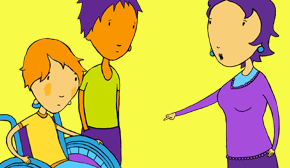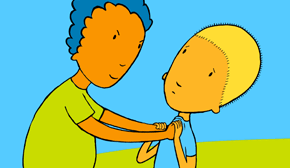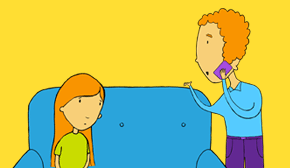These documents provide helpful advice regarding safe and appropriate behaviour.
For adults

Being Left Out
Being rejected and ostracised can hurt. Developing friendship skills at school may help young people to navigate relationships throughout their lives.

Changing bullying behaviours
When a young person engages in bullying behaviour we can help them to learn more positive ways of relating to people.

Dealing with bullying
Ways to deal with bullying have been the subject of much research. We now know some of the things that work and some of the things that don’t.

Emotional intelligence
The skills of communicating well and getting along with others are very important and can be improved with practice.

Schools, students and parents
Everyone has a part to play in developing a positive culture.

Homophobic behaviour
Bullying is common for young people who are same sex attracted or for those who don't behave according to gender stereotypes.

Cyberbullying
Cyberbullying can be pervasive and incessant.

Brodie's law
Brodie’s law can apply to all forms of serious bullying.
For kids

Primary: I’m not a victim

Primary: I’m not a bully
Be careful that what is ‘joking’ to you is not hurtful to someone else.

Primary: Real Friends
Friendships are built on what you do online and offline.

Secondary: I’m not a victim
Most of us want to feel we belong and be part of a friendship group.